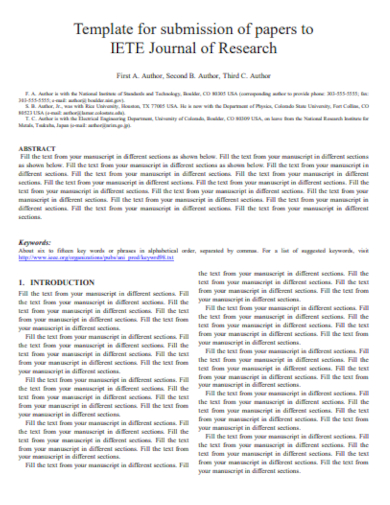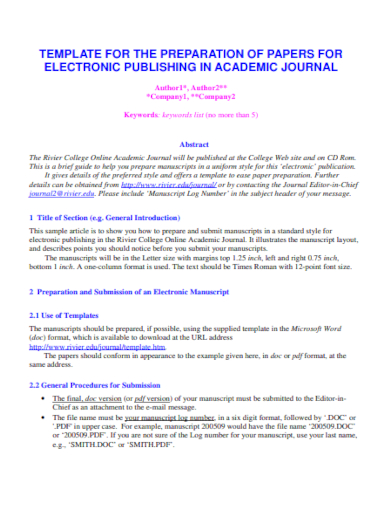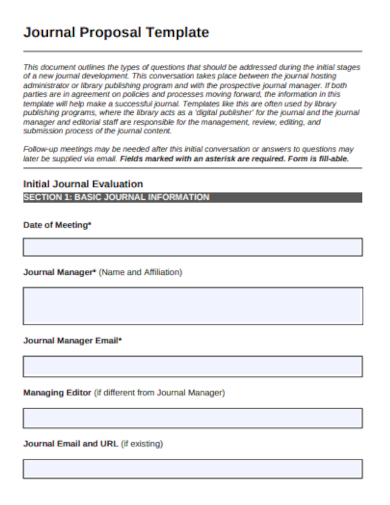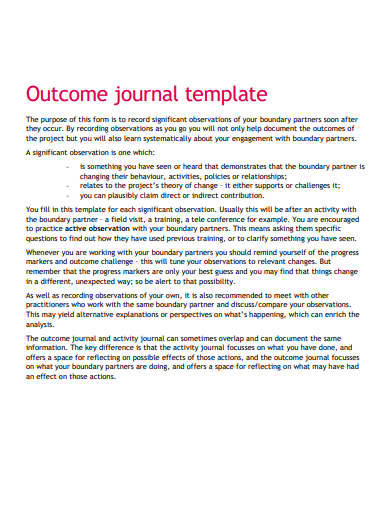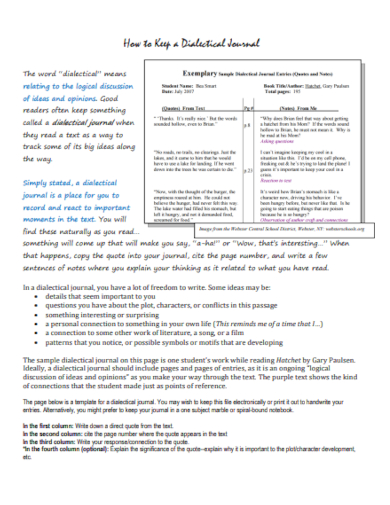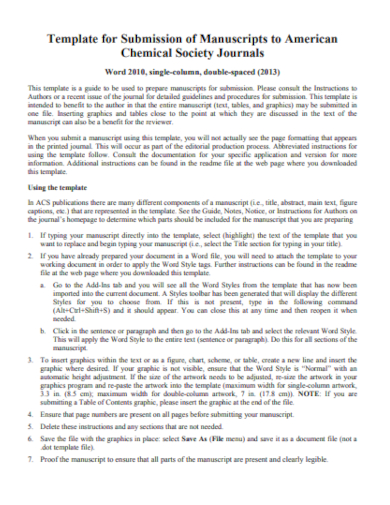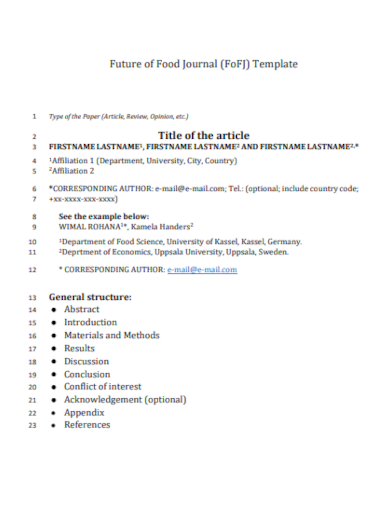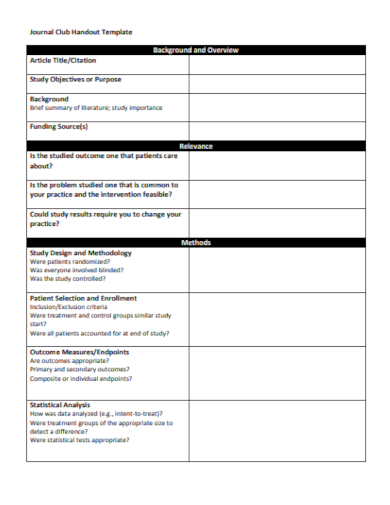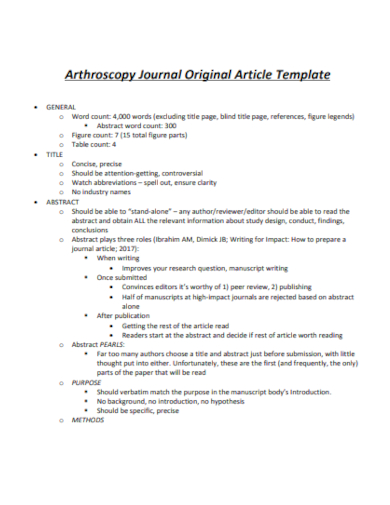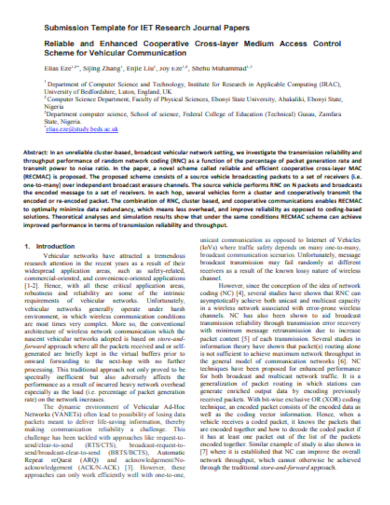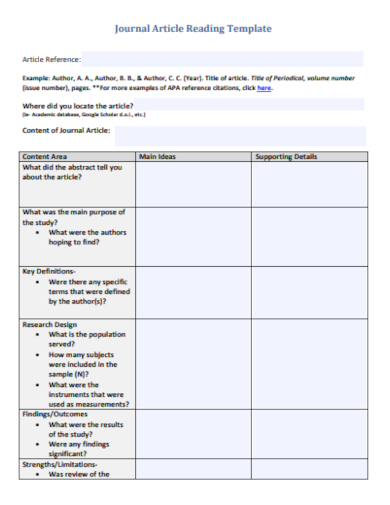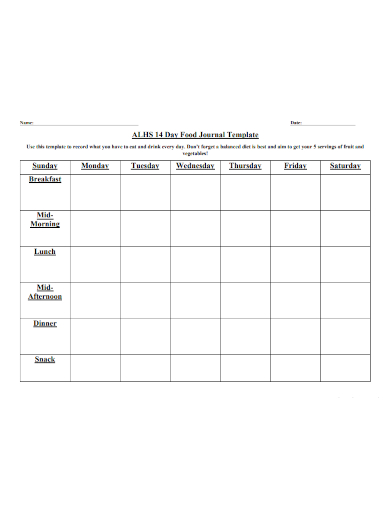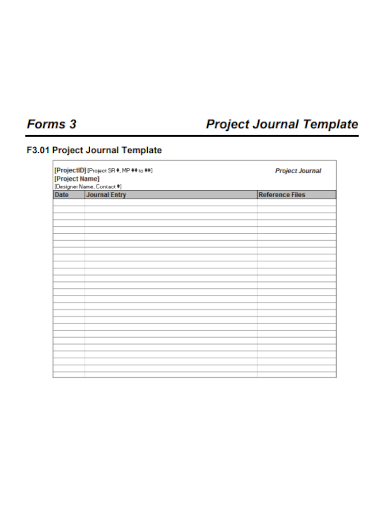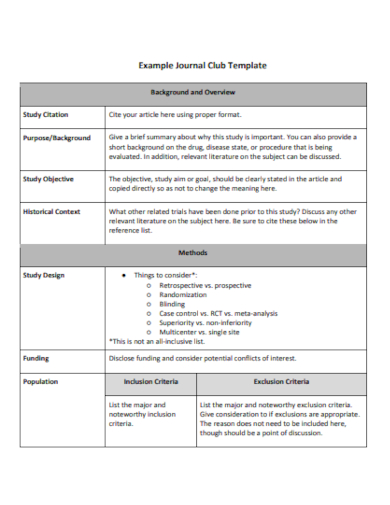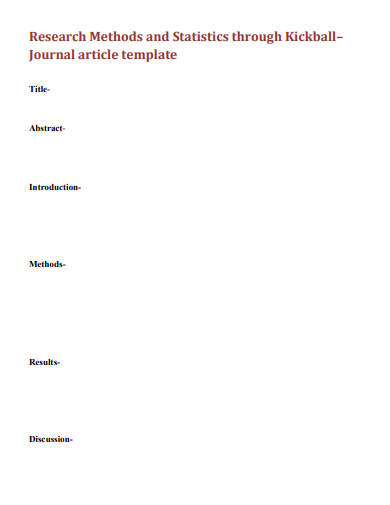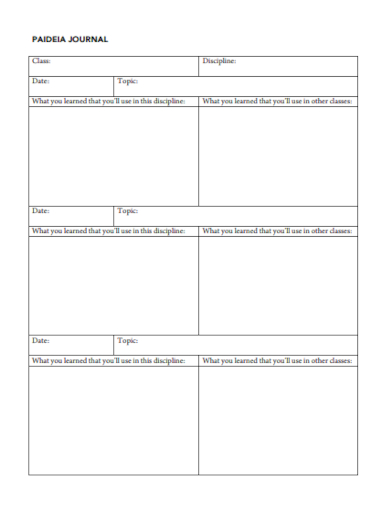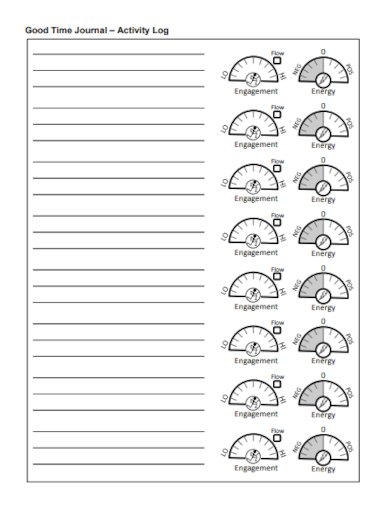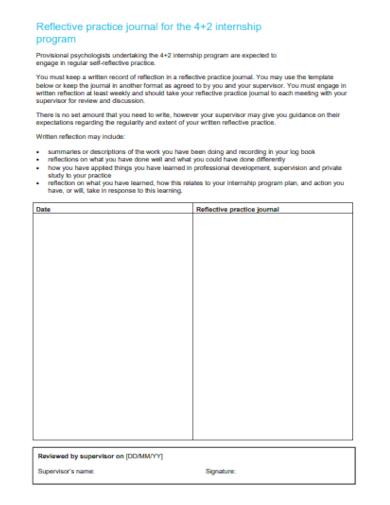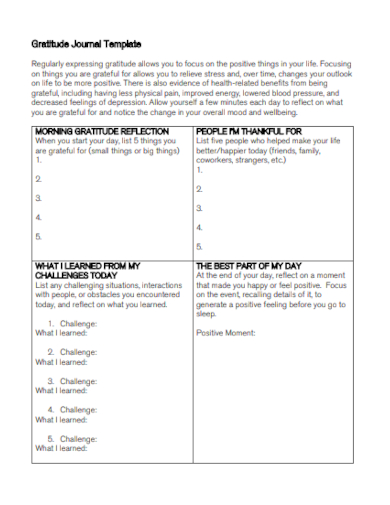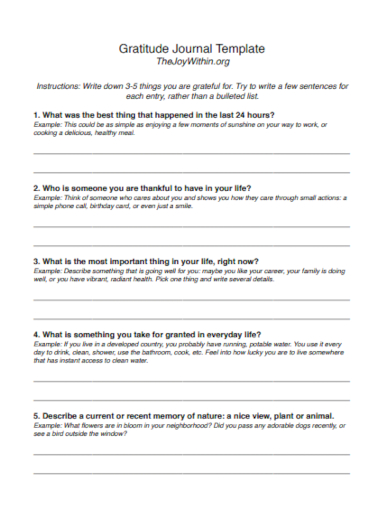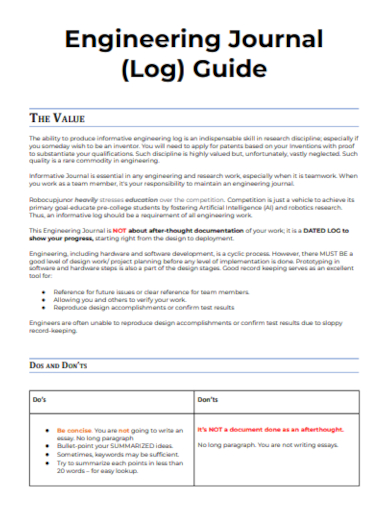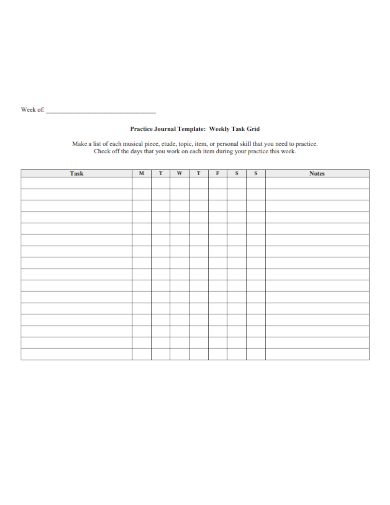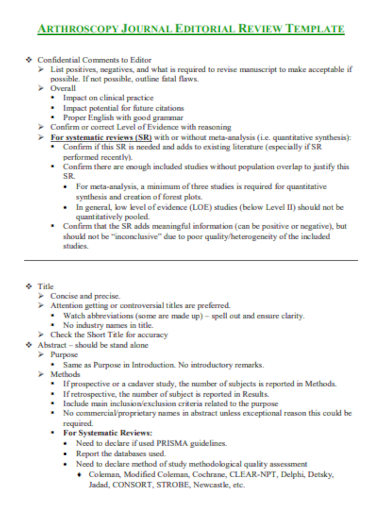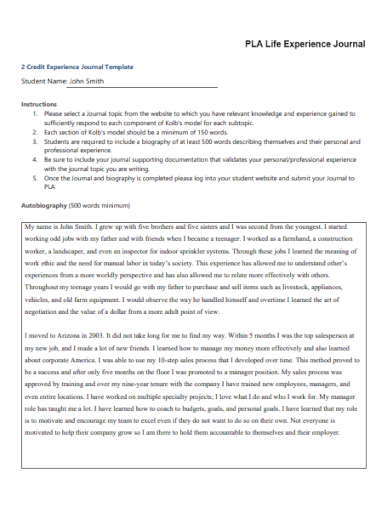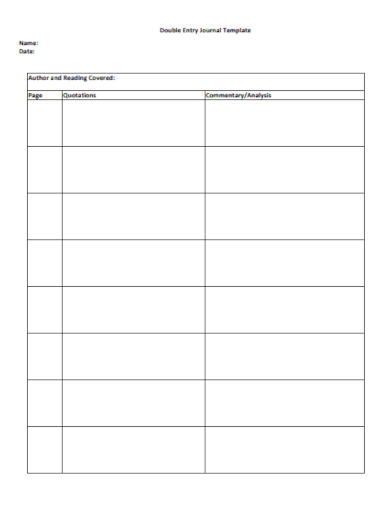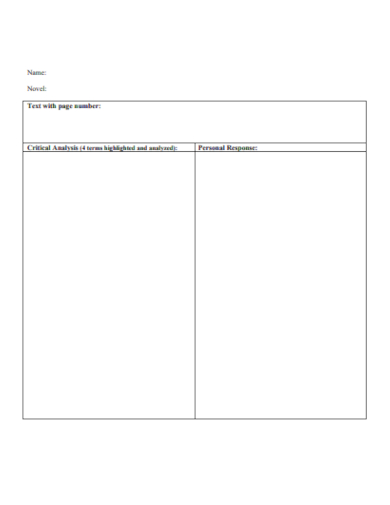In accounting, investment, and trading, a journal refers to an informative and detailed account that keeps a record of a business’s financial transactions and will be used for account reconciliation in the future and transfer details to other accounting records like a general ledger. However, a journal can also refer to a record that contains all the details of one’s life, from certain events, experiences, and feelings to everyday thoughts and memories.
30+ Journal Samples
1. Anxiety Journal Check-In Template
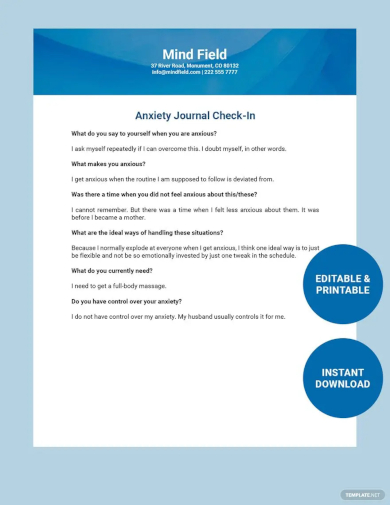
2. Sample Journal Planner Template

3. Bullet Journal Time Blocking Template
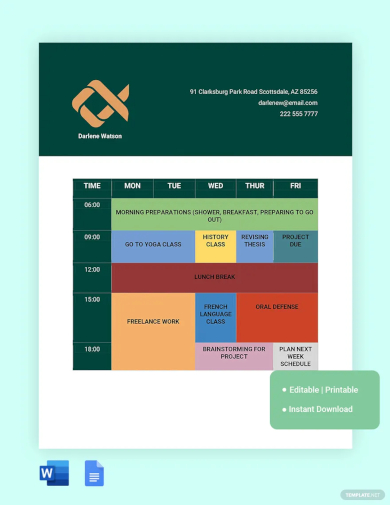
4. Bullet Journal Planner
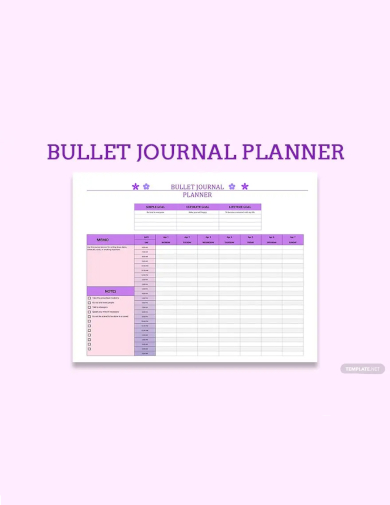
5. Poetry Journal Template

6. Research Journal Template
7. Academic Journal
8. Journal Proposal
9. Outcome Journal Example
10. Creative Dialectical Journal
11. Electronic Submission Journal
12. Food Journal
13. Journal Club Handout
14. Journal Article
15. Research Journal Paper
16. Journal Article Reading Template
17. 14 Day Food Journal
18. Project Journal
19. Journal Club Example
20. Blank Journal Article Template
21. Printable Journal
22. Journal Activity Log
23. Journal Internship Program
24. Personal Journal
25. Gratitude Journal Template
26. Engineering Journal
27. Weekly Practice Journal
28. Journal Editorial Review
29. Credit Experience Journal
30. Double Entry Journal
31. Triple Entry Journal
What is a Journal?
A journal is a document that contains a written record of an individual’s experiences, ideas, thoughts, and observations. It can be written on a daily or weekly basis or whenever the writer has the urge to write an entry. Writing a journal allows a person to remember the events they had attended, the tasks they did, what they were feeling on a particular day, and more. Other templates that an individual can use to keep a record of their activities and experiences are daily schedule planners, goal planners, vacation journals, travel journals, weight journals, and food journal templates.
How to Create a Journal
Journal writing or journaling is an informal method of recording one’s emotions or thoughts on certain topics or factors they encounter every day such as their feelings when they met with friends, talking with family, or more. This writing skill requires practice, consistency, and commitment which eventually leads to enhanced creativity and skills. Journaling does not require technical or complex topics like an essay format and can be about the writer’s routine, diet plans or tips, places they have traveled, or thoughts about the people they have met.
Step 1: Determine a Time to Write a Choose a Topic
Start your writing routine by determining the time you will be writing, your tool of choice, and a journal writing prompt. Then, choose a topic you will be writing about such as your daily routine, project plans, or your personal goals, concerns, or problems.
Step 2: Set a Pre-determined Period for Journaling
Consistency is one of the most important aspects of writing a journal. You can decide to write longer entries during the weekend or every evening.
Step 3: Explore the Way You Think
During your writing process, do not stop to edit your work until your timer alarms. Explore your thinking by allowing negative thoughts, writing expressively, and including random ideas in your journal. This provides a type of therapy that also allows you to discover yourself.
Step 4: Review Your Entries
When your timer sounds, review your work. This can be done once a week, month, or quarter depending on your preferences.
FAQs
What are the purposes of writing a journal?
Journal writing helps an author improve their writing skills, sharpen their mind, and provides them with a sense of comfort and pleasure. Journaling also has a therapeutic effect on an individual when they write their experiences and emotions.
What are the different types of journals?
Some of the different types of journals include a daily journal, reflective journal, gratitude journal, travel journal, dream journal, and bible journal.
What are the main reasons for writing a journal?
An individual writes a journal to preserve their memories, improve their writing skills, and sharpen their sense which also makes them better observers.
Journals are written documents that an individual uses to write their ideas, experiences, and thoughts on a periodic basis which is based on their preferences. Journal writing is a writing style that does not require restrictions or rules which allows the writer to express themselves in a simple and informal manner. Journals also enable them to efficiently organize their thoughts and ideas by maintaining a daily journal.
Related Posts
FREE 2+ Payroll Journal Entry Samples in MS Word PDF
FREE 11+ General Ledger Samples & Templates in PDF MS Word
FREE 13+ Journal Entry Samples in PDF MS Word
FREE 9+ Accounting Journal Samples in PDF MS Word
FREE 3+ Vacation Journal Samples in PDF
FREE 8+ Workout Log Templates in PDF MS Word
FREE 8+ Sample General Ledger in PDF
FREE 10+ Diet Log Samples in PDF
FREE 5+ Daily Food Log Samples in PDF
FREE 15+ Sample Daily Log Templates in PDF MS Word
FREE 3+ Journal Entry Samples & Templates in MS Word
FREE 10+ Article Proposal Samples [ Journal, Marriage, Project ]
FREE 26+ Payroll Templates in Excel
FREE 9+ Sample Accounting Worksheet Templates in PDF MS ...
FREE 17+ Subscription Agreement Templates in PDF MS Word ...

